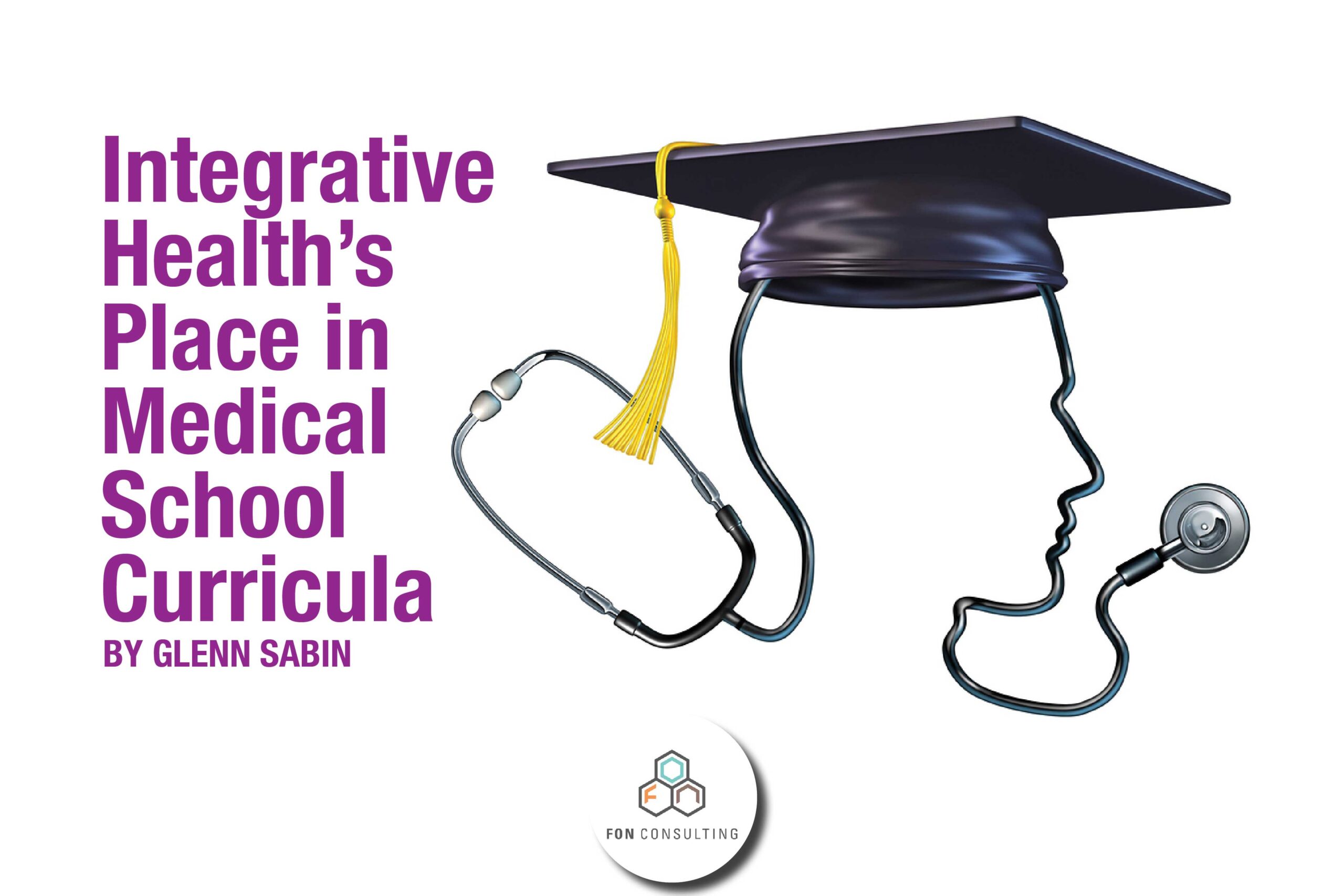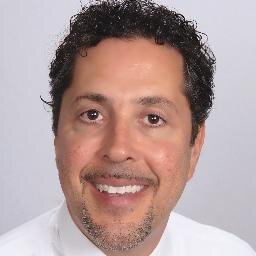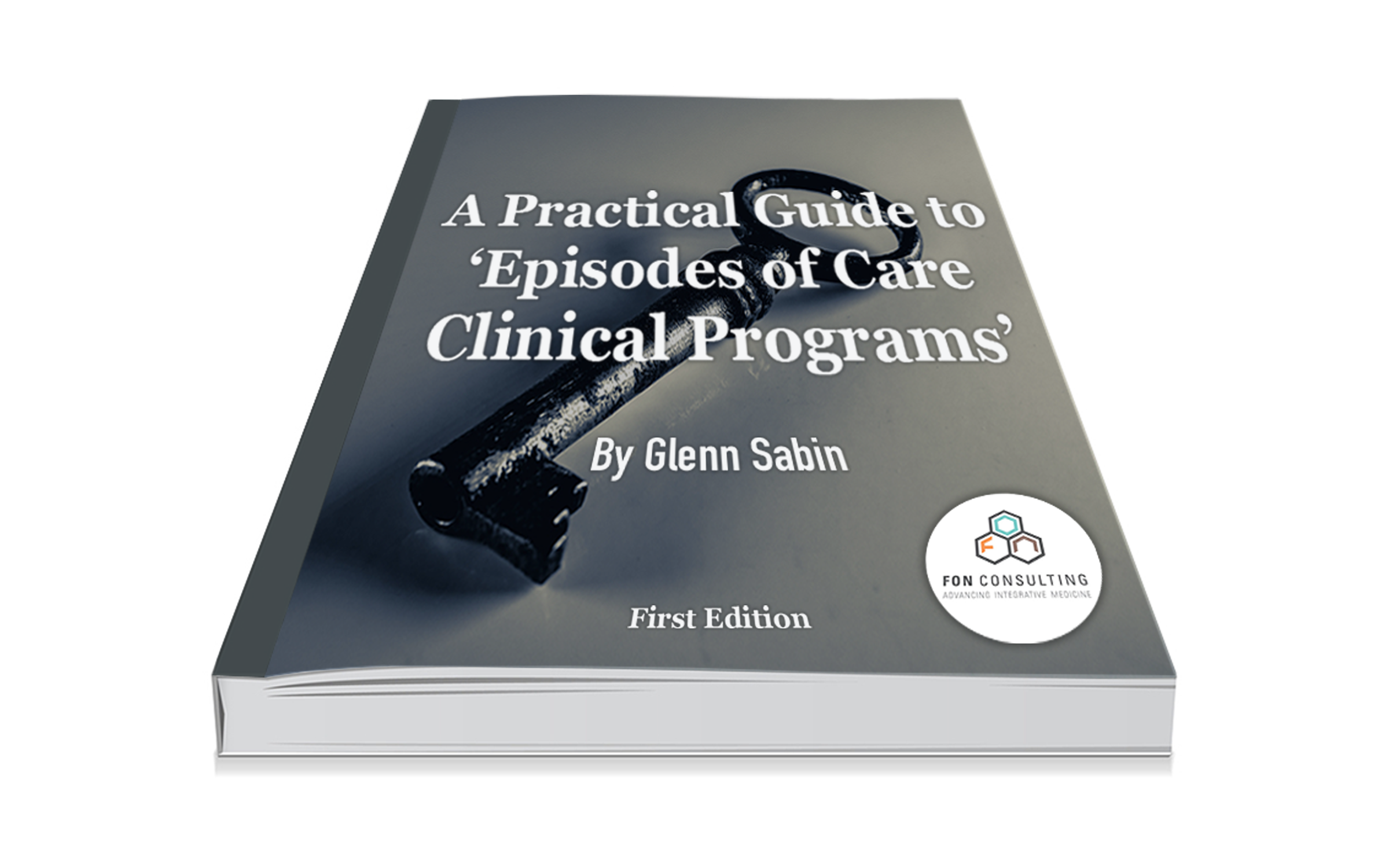Integrative Health’s Place in Medical School Curricula
By Glenn Sabin

The Academic Consortium for Integrative Medicine & Health has grown to over 70 members comprising leading academic institutions, hospitals, and health systems. Its members are actively involved in clinical services, research, and educational programming specific to the field of integrative health and medicine.
Is there any doubt that medical school curricula will follow this same trajectory? It’s actually been happening for some time, but only recently thrust into the news by a major philanthropic gift.
Heretofore, these vital areas of true disease prevention have not been taught as core curriculum in medical school, at least with any depth. Specifically, I am talking about the primary health determinants of nutrition, physical activity, stress reduction, social connection, and restorative sleep.
A study of 130 U.S. medical schools, conducted between July 2012 and July 2013, showed that half offered at least one ‘CAM’ course of clerkship. A total of 127 different course listings were found across a range of topics and instruction methods. This is a significant number, but there is a long way to go toward standardizing a baseline comprehensive curriculum that can be more widely adopted across institutions.
Most medical schools do not provide enough knowledge in these core determinants to give new physicians the confidence to make specific recommendations in these areas. According to a 2015 report in the Journal of Biomedical Education, only 29 percent of U.S. medical schools offer students the recommended 25 hours of nutrition education.
I posit that these ‘integrative and lifestyle medicine essentials’ should be the FIRST THING on which new medical students are lectured, and which are intensively embedded in coursework.
The Samuelis Step Up … and the Dwindling Naysayers Pounce
The recently announced $200 million gift to University California Irvine (UCI) from philanthropists Susan and Henry Samueli has stirred quite an emotional response from the standard-bearer naysayers of integrative medicine.
It’s the same old guard—the few out-of-touch, aging critics pushing back. These critics, enabled by a handful of influential media outlets, allow confusion to be sown into public consciousness.
Selective, therefore incomplete, reporting by media outlets such as the Los Angeles Times chose not to apply journalistic rigor to their coverage when they failed to gain a balance of objective views on the Samueli gift. Reporters did not do their research; they didn’t consider the benefactors’ vision. They missed the potential positive and long-term impact this watershed moment (the gift) will have on population health via medical school education.
Furthermore, these media outlets did not consider the steadily growing consumer interest in, and adoption of, health creation (wellness) over disease care. This particular press coverage provided no mention of the growing literature that supports the fundamental health determinants. Cost-savings associated with more holistic, non-drug approaches were altogether ignored… because the media were led astray by a tiny group of critics with their own, longstanding anti-integrative medicine agendas.
Put simply, and sadly, the media failed to recognize The Rise of Integrative Health and Medicine that has brought us to this moment in history, and how integrative health and medicine is destined to profoundly impact medical school education in our lifetime.
These same integrative health and medicine naysayers essentially conflate quackery—which ought to be called out and confronted—with the larger, progressive, and impactful, integrative health and medicine movement.
Critics also purport that nutrition, physical activity, and stress reduction are already consistently applied (or taught) clinically—that it’s already ‘part of medicine’. These few critics are wrong. Their view is incorrect. Their statements are patently false. We know this because, if these truly preventative measures were applied—if this was remotely the case—our healthcare delivery system would be consistently delivering ‘health care’, not ‘chronic disease care’.
Integrative health and medicine is a vibrant, bona fide movement—an industry, really—built on the principles of health creation. The core philosophy and delivery of integrative health and medicine tightly aligns with an ever-growing literature base and the goals of the IHI Triple Aim: Improving the patient experience of care (including quality and satisfaction); improving the health of populations; and reducing the per capita cost of health care.
Integrative health and medicine is beyond the tipping point toward becoming the new modern standard of care, but it will require a swift evolution of medical school curricula to be fully enacted.
Enjoying this article? Subscribe and get our latest, delivered straight to your inbox.
My colleague, John Weeks, wrote a terrific response in Huffington Post to the media’s shameful coverage of the visionary and game-changing Samueli gift to UCI. He cogently supports his position with actual research, facts, and developments that illustrate just how out-of-touch these dwindling skeptics are—and how a few media outlets took the bait that led them down a narrow-minded narrative centering on one controversial therapy: homeopathy.
For me, though, the back-and-forth with the cynics is not worth the expended energy. This is not just about acupuncture or chiropractic or massage or dietary supplements. It’s much bigger.
The Samueli gift is about the future of health, led by the doctors of tomorrow, like my nephew, Max, who is in his first year of medical school at George Washington University.
Healthier Medical Students = Better Doctors and Healthier Population
Medical students undergo an incredible amount of stress up to and through residency. And this happens before they are expected to weather the unremitting stressors of practicing medicine.
A 2010 paper published in JAMA titled ‘Depression, Stigma, and Suicidal Ideation in Medical Students’ shared the following well-cited conclusions:
“Medical students experience depression, burnout, and mental illness at a higher rate than the general population, with mental health deteriorating over the course of medical training. Medical students have a higher risk of suicidal ideation and suicide, higher rates of burnout, and a lower quality of life than age-matched populations. Burnout and depressive symptoms have been associated with suicidal ideation. Medical students are less likely than the general population to receive appropriate treatment despite seemingly better access to care. Students may engage in potentially harmful methods of coping, such as excessive alcohol consumption, and, despite their training, may fail to recognize that depression is a significant illness that requires treatment.”
The JAMA paper was published seven years ago. My hypothesis is that the environment has not appreciably improved for medical students and residents since the paper’s publication. And, for every young medical student that asks for help, you can bet that there are two more teetering close to the edge, or at the edge but too ashamed to seek help. After all, asking for help from professors, peers, counselors, or parents is perceived by many as being weak.
Only by teaching young medical students about health creation—their own, first—will they become healthier students and, ultimately, healthier practicing physicians. This will also position this next generation of docs to transmit these same teachings to their patients.
Latin for doctor is teacher; this is what doctors used to do. Teach. Engage. Educate. We need to establish a framework within the medical curriculum where young physicians are taught the principles of health creation to carry forward these vital ideals. This is a key solution to our chronic disease epidemic.
We have enough disease experts. We must create and educate more health and wellness experts. (Click to Tweet)
My nephew Max, the millennial medical student, is among the first generation in the U.S. expected to have a shorter lifespan than the one that preceded it. It is past time to arm our incoming physicians with the essential education required to reverse this troubling trajectory.
Absent training in lifestyle and integrative approaches to health creation, new practitioners are left to the trainings of medical school curricula that chiefly focus on a clinical process called ‘name it, blame it, and tame it’—heavily relying on drug solutions to ameliorate symptoms, as opposed to fixing root causes.
By investing in an evolved curriculum that offers, upfront, more holistic forms of coping mechanisms and support that are largely non-drug-based, these vital tools can be utilized by students first, then taught to thousands of patients over the course of their careers.
Modernizing the medical curriculum now—and in a way that first focuses on the health of the student—will help break the unsustainable, unrelenting cycle of chronic disease. Medical students, like Max, can be positioned to teach patients about true health creation, and be the first to begin their practices and specialties without total exhaustion. And, a decade or so in the future, after these students are practicing, the few remaining ‘integrative medicine science deniers’ will be long gone or, at least, long retired.
The Samueli gift should signal to medical school deans, provosts, and chancellors across the U.S., and around the world, that the time is now for institutions to take a serious look at including all aspects of integrative health into their core curricula, including: population use trends; science across modalities and therapeutic agents; multidisciplinary practitioners and specialties; fellowships; clinical delivery; and new emerging business models.
Continuing with the directives and spirit offered by the Samueli gift will provide a sustainable advantage for future medical students, and offer a critical opportunity for improving population health and the human condition.
About FON
FON is a leading integrative health and medicine business development and strategy consulting firm. FON specializes in custom solutions for growing patient volume, developing programs, and increasing product sales. Our practical business models are driven by innovative marketing, clear messaging, and customer engagement via branded storytelling.
Contact us today to schedule a complimentary 30-minute consultation to discuss your business development or personal brand needs.

Read Glenn’s story.





















